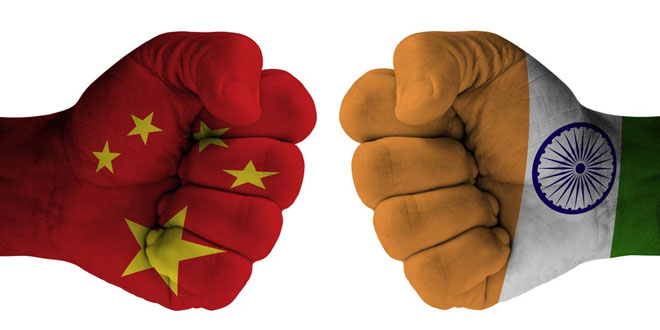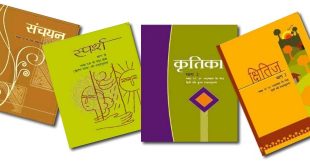Question: Who was Huynh Phu So? Explain his role in arousing the anti-imperialist sentiments.
Answer: Huynh Fhu So was a Buddhist religious scholar who was a native of the Mekong river delta.
His role in arousing the anti-imperialist sentiments:
- Founder of Hoa Hao Movement: Huynh Phu was the founder of the Hoa Hao Movement which drew on religious ideas popular in the anti-French uprisings of the nineteenth century.
- Social reformer: He was a great social reformer as he opposed the sale of child brides, gambling, and the use of alcohol and opium.
- Struggle against foreign rule: Huynh Phu So faced a great deal of trouble when he began to spread his ideas of religion, because most of his followers were Vietnamese nationalists.
The colonial government declared him mad, called him the Mad Bonze, and put him in a mental asylum. The French authorities exiled him to Laos, and sent many of his followers to concentration camps.
Question: Who was Phan Boi Chau? Explain his role in arousing anti-imperialist sentiments.
Answer: Phan Boi Chau was one of the leading figure in the anti-colonial movement in early 20th century Vietnam.
- Vietnamese Nationalist: Phan Boi Chau was a Vietnamese nationalist and a freedom fighter. He formed the Revolutionary Society in 1903 under the leadership of Prince Cuong De.
- Literary Work: He wrote his world famous book, ‘The History of the Loss of Vietnam* under the strong influence and advice of Cuong De. The book became a widely read bestseller in Vietnam and China. It was also made into a play. The book focused on two themes. The loss of sovereignty and the severing ties with China.
- His ideas regarding Freedom of Vietnam: He wanted to use monarchy in order to push French out of the country as he was of the opinion that the monarchy was still highly respected by wealthy landowners.
- His Work in Japan: In 1905 he went to Japan to get the Japanese assistance for the independence of Vietnam. In Japan, he started the Go – East Movement with an aim to provide western education to the young Vietnamese.
Question: Who was Phan Chu Trinh? How did he help in the modernization of Vietnam?
Or
Explain any four ideas of Phan Chu Trinh.
Or
Explain the features of the ideology of Phan Chu Trinh.
Or
Explain the ideas of Phan Chu Trinh to establish a democratic republic in Vietnam.
Answer: Phan Chu Trinh was also one of the greatest Vietnamese nationalists of the early 20th century.
- Against the French: He sought to end France’s brutal occupation in Vietnam.
- Western Culture: His ideas regarding the Western culture differed with Phan Boi Chau. He did not want a wholesale rejection of Western civilization.
- Hostile to monarchy: He was intensely hostile to the monarchy, and opposed to the idea of resisting the French with the help of the court. He was in favor of establishing a Democratic Republic.
- Democratic ideals: Phan Chu Trinh was influenced by the democratic ideals of the West. He accepted the French revolutionary ideal of liberty but charged the French for not abiding by the ideals. He demanded that the French should set up legal and educational institutions and should develop agriculture and industries.
Question: What was the role of religious groups in the development of the anti-colonial feeling in Vietnam?
Answer: (I) Scholar’s Revolt:
- This was an anti French Movement launched in 1887.
- The main aim of the movement was loyalty to the monarchy and hatred for the French.
- The movement was led by officials at the imperial court.
- The movement was very intense in Ngu An and Ha tien province.
- More than 1,000 Catholics were killed by the rebels.
- Though movement was crushed by the French but it served to inspire people to rise up against the French.
(II) Hoa Hao Movement:
- It was an anti French movement launched in 1939.
- The movement was launched by Huynh Phu So, a Buddhist scholar. He was also a social reformer who was against gambling, child marriage, useless . , expenditure, etc.
- The movement was based on religious ideas.
- The movement played a major role in arousing the anti French feelings
(III) Role of Phan Boi Chu: For details refer Phan Boi Chau was one of the leading figure in the anti-colonial movement in early 20th century Vietnam.
- Vietnamese Nationalist: Phan Boi Chau was a Vietnamese nationalist and a freedom fighter. He formed the Revolutionary Society in 1903 under the leadership of Prince Cuong De.
- Literary Work: He wrote his world famous book, ‘The History of the Loss of Vietnam* under the strong influence and advice of Cuong De. The book became a widely read bestseller in Vietnam and China. It was also made into a play. The book focused on two themes.
The loss of sovereignty and the severing ties with China. - His ideas regarding Freedom of Vietnam: He wanted to use monarchy in order to push French out of the country as he was of the opinion that the monarchy was still highly respected by wealthy landowners.
- His Work in Japan: In 1905 he went to Japan to get the Japanese assistance for the independence of Vietnam. In Japan, he started the Go – East Movement with an aim to provide western education to the young Vietnamese.
(IV). Role of Phan Chu Trinh: Phan Chu Trinh was also one of the greatest Vietnamese nationalists of the early 20th century.
- Against the French: He sought to end France’s brutal occupation in Vietnam.
- Western Culture: His ideas regarding the Western culture differed with Phan Boi Chau. He did not want a wholesale rejection of Western civilization.
- Hostile to monarchy: He was intensely hostile to the monarchy, and opposed to the idea of resisting the French with the help of the court. He was in favor of establishing a Democratic Republic.
- Democratic ideals: Phan Chu Trinh was influenced by the democratic ideals of the West. He accepted the French revolutionary ideal of liberty but charged the French for not abiding by the ideals. He demanded that the French should set up legal and educational institutions and should develop agriculture and industries.
Question: ‘Early Vietnamese nationalists had close relationship with Japan and China’. Explain by giving examples.
Or
Describe any five features of the ‘Go East Movement’.
Answer:
- Proper place for a strong network: Early Vietnamese nationalists had a close relationship with Japan and China. Both these countries were models for those looking for change, a refuge for those who were escaping from the colonial government. These countries provided a location where a wider Asian network of revolutionaries could be established. Even Phan Boi Chau lived in Japan for some years.
- Go East Movement:
(i). It was a Vietnamese political movement founded by Phan Boi Chau at the start of the 20th century.
(ii). The main aim of the movement was to encourage young Vietnamese to go east to Japan to get modem education.
(iii). Many young students went to Japan to get modern education. For most of them the primary objective was to drive out the French and to re-establish the Nguyen Dynasty.
(iv). They also sought Japan’s support in their struggle against French.
(v). They even established a branch of the Restoration Society in Tokyo.
(vi). But the movement slowed down after 1908 when Japanese Government banned the activities of the nationalists. Even Phan Boi Chau and many other leaders were deported. - Restoration Society: Most of the nationalists also wanted to establish a strong military in Vietnam on the lines of Japan which had defeated Russia in 1907. Vietnamese students established a branch of the Restoration Society in Tokyo but after 1908, the Japanese Ministry of Interior clamped down on them. Many nationalists including Phan Boi Chau, were deported, and forced to seek exile in China and Thailand.
- Chinese Revolution, a source of inspiration: The Vietnamese nationalists were also inspired by the revolutionary movement which occurred in China. In 1911, the long established monarchy in China was overthrown by a popular movement under Sun Yat Sen and a ‘Republic’ was set up. Inspired by these developments, the Vietnamese students organised the Association for the Restoration of Vietnam (Viet-Nam Quan Phuc Hoi).
 Class Notes NCERT Solutions for CBSE Students
Class Notes NCERT Solutions for CBSE Students





